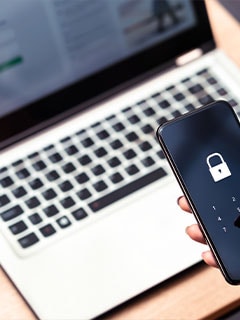CKYC Registry
-
Customer Service Contact us Service request Locate a branch
Find all the help you need
Scan the QR, get our app, and find help on your fingertips

Help CenterSupport topics, Contact us, FAQs and more
-
Login
Are you ready for an upgrade?
Login to the new experience with best features and services
-
Login
Are you ready for an upgrade?
Login to the new experience with best features and services
- Accounts
-
Deposits
IDFC FIRST Bank Deposits
View all Deposits -
Loans
IDFC FIRST Bank Loans
View all Loans - Wealth & Insure
-
Payments
IDFC FIRST Bank Payments
View all Payments -
Cards
IDFC FIRST Bank Cards
View all Cards - Blogs
- Corporate Account
-
Cash Management Services
IDFC FIRST Bank Cash Management Services
View all Cash Management Services - Supply Chain Finance
-
Corporate Lending
IDFC FIRST Bank Lending
View all -
Treasury
IDFC FIRST Bank Treasury
See more details - NBFC Financing
Support topics, Contact us, FAQs and more
- IDFC FIRST Bank Accounts
-
Savings Account
-
Corporate Salary
Account -
Senior Citizens
Savings Account -
First Power
Account -
Current Account
-
NRI Savings
Account -
TASC Institutional
Account -
Savings Account
Interest Calculator
- IDFC FIRST Bank Deposits
-
Fixed Deposit
-
Recurring Deposit
-
NRI Fixed Deposit
-
Safe Deposit Locker
-
FD Calculator
-
RD Calculator
- IDFC FIRST Bank Loans
-
Personal Loan
-
Consumer Durable
Loan -
Home Loan
-
Business Loan
-
Professional Loan
-
Education Loan
-
New Car Loan
-
Pre-owned Car Loan
-
Two Wheeler Loan
-
Pre-owned Two
Wheeler Loan -
Commercial Vehicle
Loan -
Gold Loan
-
Loan Against Property
-
Loan Against Securities
-
Easy Buy EMI card
-
Personal Loan
EMI Calculator -
Education Loan
EMI Calculator -
Home Loan
EMI Calculator -
EMI Calculator
-
Personal Loan Eligibility Calculator
- IDFC FIRST Bank Wealth & Insure
-
FIRST Select
-
FIRST Wealth
-
FIRST Private
-
Mutual Funds
-
Sovereign Gold Bond
-
Demat Account
-
Term Insurance
-
Life Insurance
-
Health Insurance
-
General Insurance
-
Bonds
-
Loan Against
Securities -
Portfolio Management
Service
- IDFC FIRST Bank Payments
-
FASTag
-
Credit Card
Bill Payments -
UPI
-
Funds Transfer
-
Forex Services
-
Pay Loan EMI
- IDFC FIRST Bank Cards
-
Ashva :
Metal Credit Card -
Mayura :
Metal Credit Card -
FIRST Millennia
Credit Card -
FIRST Classic
Credit Card -
FIRST Select
Credit Card -
FIRST Wealth
Credit Card -
FIRST WOW!
Credit Card -
Deals
-
Debit Cards
-
Co-branded Cards
-
Credit Card
EMI Calculator -
FIRST Corporate
Credit Card -
FIRST Purchase
Credit Card -
FIRST Business
Credit Card
- Premium Metal Credit Cards
-
AshvaLifestyle1% Forex₹2,999
-
MayuraLifestyleZero Forex₹5,999
-
FIRST PrivateInvite Only
- Best for travellers
-
MayuraZero ForexMetal₹5,999
-
Ashva1% ForexMetal₹2,999
-
FIRST WOW!Zero ForexTravelLifetime Free
-
FIRST SWYPTravel OffersEMI₹499
-
FIRST Select1.99% ForexLifestyleLifetime Free
-
FIRST Wealth1.5% ForexLifestyleLifetime Free
-
Club VistaraTravelLifestyle₹4,999
-
IndiGo IDFC FIRST Dual Credit CardTravelLifestyle₹4,999
- Max benefits, Free for life
-
FIRST Classic10X RewardsShoppingNever Expiring Rewards
-
FIRST Millennia10X RewardsShoppingNever Expiring Rewards
-
FIRST Select10X RewardsLifestyle1.99% Forex
-
FIRST Wealth10X RewardsLifestyle1.5% Forex
-
FIRST WOW!RewardsTravelZero Forex
-
LIC ClassicRewardsInsuranceShopping
-
LIC SelectRewardsInsuranceShopping
- Reward Multipliers
-
AshvaLifestyleMetal₹2,999
-
MayuraLifestyleZero Forex₹5,999
-
FIRST ClassicNever Expiring RewardsShoppingLifetime Free
-
FIRST MillenniaNever Expiring RewardsShoppingLifetime Free
-
FIRST SelectNever Expiring RewardsLifestyleLifetime Free
-
FIRST WealthNever Expiring RewardsLifestyleLifetime Free
- Rewards & Credit on UPI
-
FIRST Power+FuelUPI₹499
-
FIRST PowerFuelUPI₹199
-
FIRST EA₹NVirtual1% Cashback₹499
-
FIRST DigitalVirtualUPI₹199
-
IndiGo IDFC FIRST Dual Credit CardUPITravelDual cards
- Fuel and Savings
-
FIRST PowerRewardsUPI₹199
-
FIRST Power+RewardsUPI₹499
-
LIC ClassicRewardsInsuranceShopping
-
LIC SelectRewardsInsuranceShopping
- Express and Flaunt
-
AshvaMetal1% Forex₹2,999
-
MayuraMetalZero Forex₹5,999
-
FIRST SWYPEMIOfferMAX₹499
-
FIRST MillenniaRewardsShoppingLifetime Free
- FD Backed rewarding Credit Cards for all
-
FIRST EA₹NVirtualCashback₹499
-
FIRST WOW!Zero ForexTravelLifetime Free
-
CreditPro Balance TransferTransfer & SaveReduce InterestPay Smartly
- IDFC FIRST Bank NRI Forex Solutions
-
Send money to India-Wire transfer
-
Send money to India-Digitally
-
Send money abroad
-
Max Returns FD (INR)
- IDFC FIRST Bank MSME Accounts
-
Platinum Current
Account -
Gold
Current Account -
Silver Plus
Current Account -
Merchant Multiplier
Account -
Agri Multiplier
Account -
TASC Institutional
Account -
Dynamic Current
Account -
World business
Account -
First Startup
Current Account
- IDFC FIRST Bank Business Loans
-
Business Loan
-
Professional Loan
-
Loan Against Property
-
Business Loan for Women
-
Working Capital Loan
-
Construction Equipment Loan
-
Machinery Loan
-
Healthcare Equipment Loan
- IDFC FIRST Bank Business Solutions
-
Payment Solutions
-
Tax Payments
-
Doorstep Banking
-
Point of Sale (POS)
-
Escrow Accounts
-
NACH
-
Payment Gateway
-
UPI
-
Virtual Accounts
-
As per amendment in the Income Tax Rules, PAN or Aadhaar are to be mandatorily quoted for cash deposit or withdrawal aggregating to Rupees twenty lakhs or more in a FY. Please update your PAN or Aadhaar. Kindly reach out to the Bank’s contact center on 1800 10 888 or visit the nearest IDFC FIRST Bank branch for further queries.
-
-
Most Searched
Sorry!
We couldn’t find ‘’ in our website
Here is what you can do :
- Try checking the spelling and search
- Search from below suggestions instead
- Widen your search & try a more generic keyword
Suggested
Get a Credit Card
Enjoy Zero Charges on All Commonly Used Savings Account Services
Open Account Now
Savings Account
Bank Account Number - How to Check or Find Your Bank Account Number Online
Key Takeaways
If you are not sure about your bank account number, you can conveniently find it on your chequebook, passbook, or bank account statements.
The simplest way to know your bank account number is via your mobile banking application.
It is necessary to keep your account number secure and be aware of how to utilise it with all the safety measures in place.
Bank Account Number
Managing your finances efficiently starts with having a bank account, which helps you securely store funds and make transactions with ease. Every bank account is associated with a unique account number that identifies your personal or business banking profile. Whether you're looking to receive your salary, make payments, or keep track of your savings, knowing how to access your bank account details is essential. But if you’re unsure about how to find your bank account number online, don’t worry—there are simple methods to do this from the comfort of your home.
In this guide, we’ll walk you through the easiest ways for an account number check online and how to securely access my bank account details without needing to visit your bank. Keep reading to learn how to quickly find your bank account number online using various platforms.
READ MORE
What is a bank account number?
A bank account number is a unique identifier allotted to every individual account held at a bank. It serves several essential purposes, including account identification, fund transfers, and setting up automatic payments. When you want to transfer/receive funds or set up automatic payments, your bank account number is what you provide.
As a bank account number is a basic identifier, no two banks can have the same bank account number. Each bank account number is secured and confidential, and it is essential to keep it safe. Sharing your bank account number carelessly can expose you to risks. It is also recommended to always cross-check bank account numbers before making the transaction to make sure your funds are heading to the right place. So, the importance of a bank account number cannot be undermined in contemporary banking.
While it is crucial to know your bank account number for accepting payments, investing, and paying bills, it is also crucial to have an account that offers comprehensive benefits in your everyday banking. Considering this, IDFC FIRST Bank offers savings accounts with a range of features to enhance your banking experience and help you save more. As an account holder, you get one of the highest savings account interest rates of up to 7.00% p.a., with the facility of monthly interest credit, and all commonly used savings account services without any charges * to help your money grow better. Explore More!
How does a bank account number work?
To find your bank account number, you can find it mentioned in your chequebook, passbook, net banking portal, mobile banking app, account statements, etc.
A regular savings bank account number can be utilised for account identification, to transfer funds, or to set an auto pay mode. Cheque payments and utility bill payments also require an account number since it is the key identifier during transactions.
How to Protect your Bank Account Number?
A bank account number is crucial information and is vulnerable to theft and bank fraud. Thus, it is necessary to safeguard it.
With advanced digital intervention, several other security measures have been employed such as two-factor authentication, multi-step verification, and more. When you update any changes in your bank account, you must verify through an OTP and provide profile passwords. A profile password is an added layer of security which is different from your log-in password, and it is only used when changing information in your bank account such as your address, adding a beneficiary, and more.
How to Locate your Bank Account Number Online or Offline?
In case you are not sure about your bank account number, you can conveniently find it on your chequebook, passbook, or bank account statements. New bank accounts offer a welcome kit that contains account details such as debit card information, online banking log-in access, etc., including your account number.
The simplest way to know your bank account number is via your mobile banking application. To fetch your bank account number, simply sign in to your online banking account and search for the ‘Account Details’ option.
How Long is your Bank Account Number?
Banks in India follow a defined format for assigning bank account numbers. The account number can be an 11-digit to 16-digit number depending on the bank.
How to find your bank account number
5 Different Ways to Know or Find Your Account Number
A welcome letter
When a bank account is opened, you receive a welcome kit. This letter includes your bank branch ID, customer ID, account number details, and other crucial information. Locating your account number details in the welcome letter is the easiest and simplest way.
A chequebook
A chequebook contains all crucial details like your name, mobile number, address, bank account number, etc. Also, you can find your current or savings bank account number digits on every cheque leaf.
A bank passbook or account statement
The first page of the passbook has your account details, which include your name, account number, age, date of birth, contact address and number, and so on. You can either check your account number on your passbook or conduct a bank account number search online through net or mobile banking.
With most banks offering e-statements on request, you can even conduct an account number check online by looking into your registered email account for the receipt of the same.
Mobile banking app
By using your bank’s mobile app, you can locate your account number easily. On logging into the app, you get to see your bank account number.
Net banking
You can look for all your essential bank account details on the net banking portal, including your bank account number. This is usually on the homepage once you log in to your account along with your account balance and other basic details.
Importance of keeping your bank account number secure
People usually share their account numbers without hesitation. However, registering your bank account number anywhere might lead to fraud or data theft, so it is necessary to keep your account number secure and be aware of how to utilise it with all the safety measures in place. Mentioned here are some crucial reasons why you must keep your account number safe:
Banking fraud
It is the most common reason why you shouldn’t share your bank account details without checks. A bank account number contains numerous details and has your debit and credit card details linked with the account. Banks also suggest not sharing your account details unless a fund transfer is involved. Even if you share your bank account details for money transfers, you must be aware of the credibility of the sender, especially if it is a first-time sender or an online source from where you are receiving the money.
Personal identity theft
Identity theft is quite common in the current digital environment. Whatever details you put public online are vulnerable to data thieves who collect information for possible fraud or cybercrimes. However, knowing just your account number, unethical hackers won’t be able to withdraw funds from your bank account but, they can closely monitor your activities and put you under the radar to collect crucial information, which can eventually result in financial losses. Ensure to keep your account number confidential unless you are accepting fund transfers from a trusted source.
Online threat
It is always advisable not to share your account number online through e-mails or similar sources since they can be read by anyone accessing the device. Doing so can also create a similar threat to your bank account such as fraud and data theft. Use trusted and secured channels to share your account details, especially when using a social media platform for sharing information.
Avoid providing details to random texts requesting your account numbers
A common fraud that surfaced recently was requesting account numbers instead of sending some prize money through lotteries, online games, and more. Always avoid responding to such texts, emails, or messages. Providing account numbers to such sources can surely cause you severe financial harm. It is always important to make the right decisions and keep your bank account safe by not sharing your bank account details with a random communication you received online.
Conclusion
To find your account number, you can check your bank mini statement, passbook, and chequebook or log in to your online bank account. Since it is sensitive information, you must keep your account number safe and use it with trusted and known sources.
Frequently Asked Questions
What is a bank account number, and does it help?
A bank account number is a set of digits assigned to a bank account confidential to him/her which helps banks identify their account details. Being a unique identifier, an account number is never the same for two different accounts. Banks and financial organisations use a defined format to assign account numbers so that they remain unique.
A bank account number is most used for sending money. In online fund transfers, it is the key identifier for the account holder.
Where can I find my account number?
You can either use your mini statement, log into your online account, or visit your bank branch to find your account number. Some other ways are –
· Welcome kit of your bank account
· Chequebook
· Bank passbook
· Online bank account
· Bank account statement
Can I change my account number?
Once your bank account number is assigned, you cannot change this as they are unique identifiers.
Can I send money without knowing the bank account number of the beneficiary?
For online transactions involving NEFT, IMPS, and RTGS, you need the bank account details of the beneficiary such as account number, IFSC Code, and account name. However, you don’t need the bank account details in case of UPI transactions since money is transferred through the linked mobile number and you only need the mobile number of the beneficiary. UPI uses Virtual Payment Addresses which contain the details of the account bank account with which a specific mobile number is registered.
Does the account number change when I transfer from my home branch to another branch?
No, the bank account number does not change if you transfer your account to another branch from your home branch. You can continue using debit cards, chequebooks and other bank account services without any hassle or interruption.
*IDFC FIRST Bank offers zero-fee banking on Savings Accounts, subject to maintenance of required Average Monthly Balance in the account.
Disclaimer
The contents of this article/infographic/picture/video are meant solely for information purposes. The contents are generic in nature and for informational purposes only. It is not a substitute for specific advice in your own circumstances. The information is subject to updation, completion, revision, verification and amendment and the same may change materially. The information is not intended for distribution or use by any person in any jurisdiction where such distribution or use would be contrary to law or regulation or would subject IDFC FIRST Bank or its affiliates to any licensing or registration requirements. IDFC FIRST Bank shall not be responsible for any direct/indirect loss or liability incurred by the reader for taking any financial decisions based on the contents and information mentioned. Please consult your financial advisor before making any financial decision.
The features, benefits and offers mentioned in the article are applicable as on the day of publication of this blog and is subject to change without notice. The contents herein are also subject to other product specific terms and conditions and any third party terms and conditions, as applicable. Please refer our website www.idfcfirstbank.com for latest updates.























